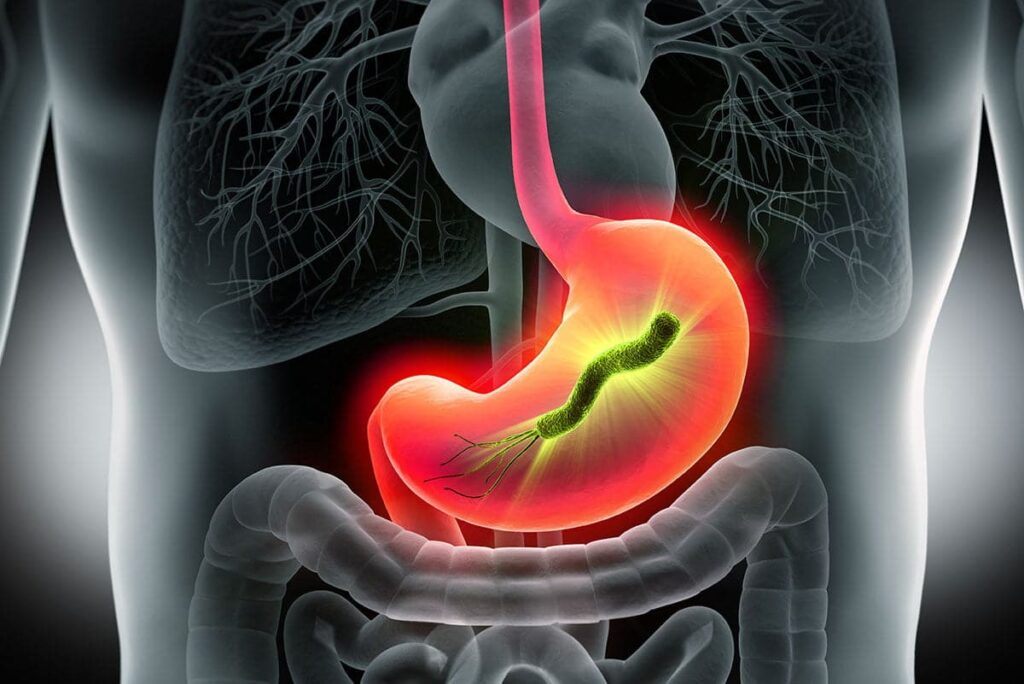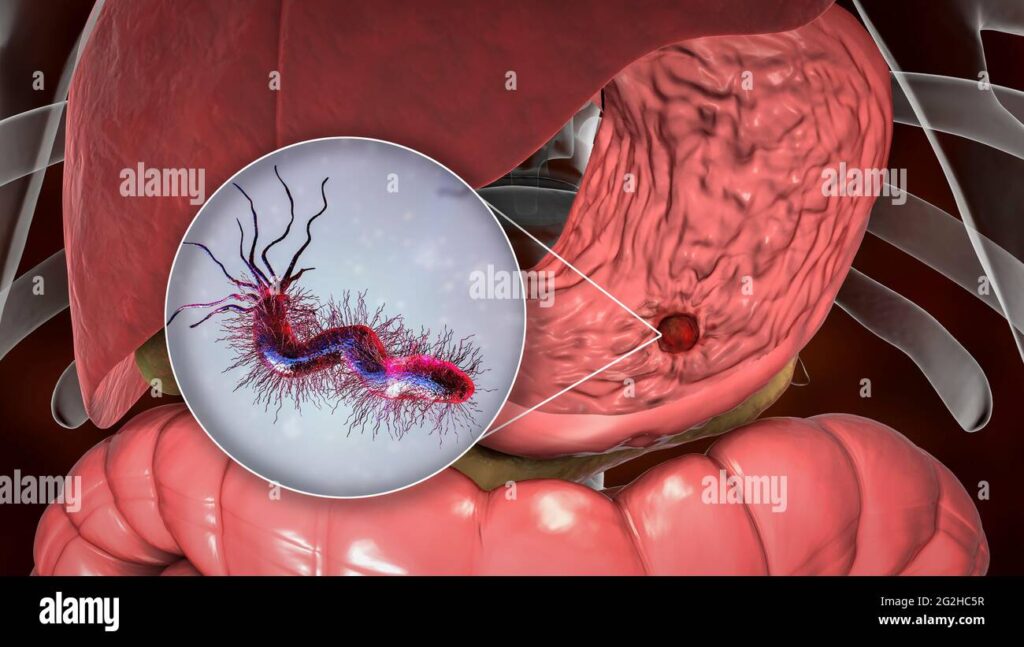Introduction
Helicobacter pylori (H. pylori) is a spiral-shaped bacterium that infects the stomach lining. It is one of the most common bacterial infections worldwide and is strongly linked to gastritis, peptic ulcers, and in severe cases, stomach cancer. To detect this infection, healthcare providers often recommend an H. pylori test. Early diagnosis is crucial for effective treatment and prevention of long-term complications.
What is an H. Pylori Test?
An H. pylori test is a medical examination used to identify the presence of H. pylori bacteria in the stomach or digestive tract. It helps doctors determine whether symptoms such as abdominal pain, bloating, nausea, or unexplained ulcers are caused by this infection.

Types of H. Pylori Tests
Urea Breath Test
The patient drinks a solution containing urea.
If H. pylori is present, the bacteria break down the urea and release carbon dioxide, which is detected in the breath.
Highly accurate and commonly used.
Stool Antigen Test
Detects H. pylori proteins (antigens) in a stool sample.
Useful for both diagnosis and confirming whether treatment has worked.
Blood Test (Serology)
Checks for antibodies against H. pylori.
Not as reliable for current infection since antibodies may remain after treatment.
Endoscopy with Biopsy
A small tissue sample from the stomach lining is taken during endoscopy.
The biopsy can be tested for H. pylori using several methods (rapid urease test, culture, or microscopic examination).
Usually recommended if ulcers, bleeding, or cancer are suspected.
When is the Test Recommended?
Doctors may suggest an H. pylori test if you have:
Persistent abdominal pain or discomfort
Bloating, nausea, or frequent burping
Unexplained weight loss
Peptic ulcers
A family history of stomach cancer
Preparation for the Test
Patients may be asked to stop antibiotics, antacids, or proton pump inhibitors (PPIs) for 2–4 weeks before testing, as these medicines can affect accuracy.
Fasting may be required for breath and endoscopy tests.
Importance of Early Diagnosis
Detecting H. pylori early helps prevent:
Chronic gastritis
Peptic ulcers
Stomach bleeding
Increased risk of gastric cancer
Successful treatment usually involves a combination of antibiotics and acid-suppressing medications, known as triple therapy or quadruple therapy.
Conclusion
The H. pylori test is an essential diagnostic tool in modern medicine. With accurate detection methods such as the urea breath test, stool antigen test, blood test, and biopsy, doctors can effectively diagnose and treat infections. Early testing not only relieves discomfort but also prevents serious complications, protecting long-term digestive health.
